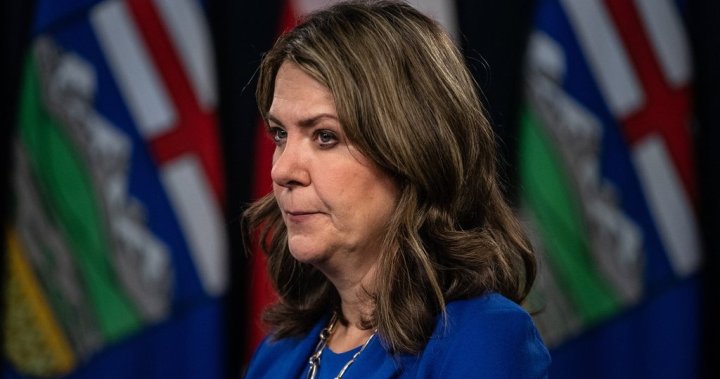The dust hasn’t settled yet on a controversial Alberta government survey asking residents whether immigrants should receive social services comparable to those available to Canadian citizens. As I’ve watched this story develop from my desk at LCN, it’s become clear this isn’t just about policy preferences – it’s opening deep fractures in how Albertans view immigration itself.
Released earlier this month through the province’s “Alberta’s Next” initiative, the survey explicitly asks respondents if they “strongly agree, somewhat agree, somewhat disagree or strongly disagree” with the statement: “New immigrants to Alberta should receive the same level of government services as those born in Canada.”
Let me be frank – surveys like these don’t appear in a vacuum. Premier Danielle Smith’s government has increasingly positioned itself against federal immigration policies, with provincial ministers repeatedly suggesting Alberta needs more control over who settles here.
Walking through downtown Calgary yesterday, I couldn’t help noticing the animated conversations this has sparked. Outside the Central Library, I overheard three young professionals debating whether the question itself creates a harmful division.
“The survey question presupposes there’s a reasonable argument for treating immigrants differently,” said Michael Lee, a 34-year-old software developer I later interviewed. “That’s what bothers me – it frames differential treatment as a legitimate policy option.”
The Premier’s office has defended the survey as simply seeking Albertans’ input on important issues. However, immigration experts point out the question’s framing ignores crucial context about our existing system.
“Most immigrants don’t immediately qualify for many social services anyway,” explained Dr. Sophia Martinez, migration policy researcher at Mount Royal University. “There are already waiting periods for healthcare in some provinces and restrictions on accessing income support. The question creates a false impression that immigrants automatically receive everything citizens do.”
Provincial data shows immigrants contribute significantly to Alberta’s economy. According to Alberta Treasury Board and Finance, immigrants make up approximately 23% of Alberta’s labor force while accounting for only about 17% of social assistance recipients – meaning they’re net contributors to our social safety systems.
The survey has particularly troubled Calgary’s settlement agencies. Having reported on immigration issues for over a decade, I’ve rarely seen such unanimous concern from these typically non-partisan organizations.
“This kind of framing damages social cohesion and creates unnecessary divisions,” said Mahmoud Al-Sayed, executive director of Calgary Newcomer Support Network. “Our clients are doctors, engineers, caregivers – people filling critical labor shortages who just want to contribute and be treated with dignity.”
What strikes me most in conversations with ordinary Albertans is how quickly opinions align with existing political affiliations. Those already supportive of the UCP tend to see the question as reasonable governance, while those opposed view it as deliberately divisive.
The timing cannot be ignored. This survey emerged just weeks after Premier Smith publicly criticized federal immigration targets and suggested Alberta might need to “put the brakes on” population growth despite the province’s labor shortages.
Statistics Canada reports Alberta’s unemployment rate sits at 6.3%, slightly above the national average. However, specific sectors like healthcare, construction, and service industries continue reporting severe staffing shortages – positions frequently filled by newcomers.
“We’re simultaneously hearing businesses can’t find workers while the government suggests immigrants might be a burden,” noted Calgary Chamber of Commerce spokesperson Jennifer Williams. “These mixed messages create uncertainty for businesses trying to plan ahead.”
For context, permanent residents in Alberta already face a three-month waiting period before accessing provincial healthcare. Most federal settlement programs are time-limited, designed specifically to help newcomers integrate and become self-sufficient. Evidence consistently shows immigrants use emergency services at lower rates than Canadian-born citizens.
The provincial government maintains that gathering public opinion through surveys helps shape responsive policy. Critics counter that the way questions are framed reveals predetermined political agendas.
Having covered Alberta politics through multiple administrations, I’ve observed how immigration rhetoric often intensifies during periods of economic anxiety or before elections. The current situation follows that familiar pattern.
What remains uncertain is how the survey results will be used. Will policy actually change based on responses? Or is this primarily about signaling certain political positions to core supporters?
One thing is clear: in coffee shops and community centers across Calgary, this survey has Albertans talking about fundamental questions of fairness, belonging, and what kind of province we want to be.
As we await the survey results in the coming weeks, the conversation it has sparked may prove more significant than whatever policy changes might follow. Sometimes, the questions we ask reveal more about us than the answers we receive.







